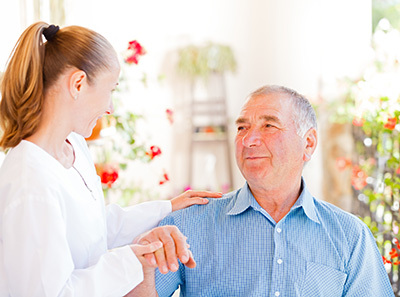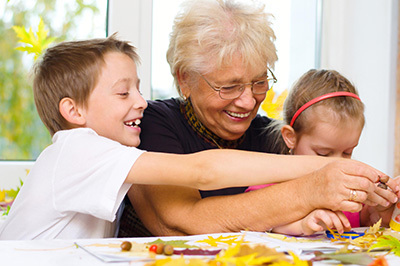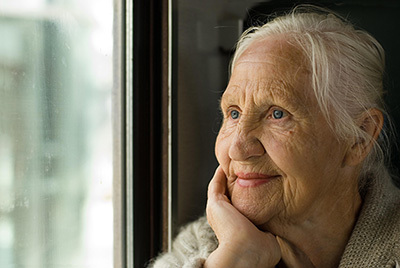Newsletter


Our Newsletter
Connections
Jan
10

5 Tips for Keeping Your New Year’s Resolutions
Last month we posted a blog entitled "7 New Year's Resolutions to Improve Your Health in the Coming Year." As a follow-up, we're offering a few tips for keeping your resolutions. Because as we all know, there's nothing easier than making a resolution—and nothing harder than keeping one!
In fact, one study of 3,000 people showed that just a little over 10% of people are able to keep their New Year's resolutions. Here are the major reasons why:
The resolution is unrealisticProgress isn't trackedPeople forget about the resolutionPeople make too many resolutions
Following are 5 ways for you to help keep your resolutions.
1. Set specific goals
Wanting to lose weight—just to use one example of a common resolution – is an admirable goal. But be specific. How much weight do you want to lose? 10 pounds? 20? Or perhaps your resolution is to exercise more. How? Walking? Swimming? How often? How far? Once you understand the parameters, the following tip will come in handy.
2. Measure your progress
Now that you know how much weight you want to lose or how much you want to exercise, track your progress by keeping a diary. If you are not achieving your goals, you'll know what you have to do. If you are reaching your goals, you may be inspired to strive for even more.
3. Talk about your goals
Share your experiences with family and friends. You might consider joining a support group, such as an exercise class, to reach your goals. Sharing your challenges and success may help make keeping your resolutions much easier and more enjoyable.
4. Ask for help
You are surrounded by people who want you to succeed—and want to help. Don't hesitate to ask. You may be surprised how much they can help you achieve your goals, even if just by offering their support.
5. Be kind to yourself
It's perfectly normal to go off your diet or skip the gym. But that's okay. There's no need to beat yourself up—or worse, give up altogether. The important thing is to resolve to get back on track as soon as possible.
By following these 5 simple tips, you'll be on your way to achieving your New Year's resolutions!
Dec
20

There is Fire and There is Fire
Fire is an incredible element and force of nature. On the one hand it can be overwhelming when it burns out of control. Parts of Southern California have been ablaze for weeks. Many days, though we were not close to the fires, we had to stay indoors to avoid inhaling the smoke. Thankfully, because of the bravery and diligence of the firefighters, who have had to work day and night, lives, homes and even synagogues have been saved by the skills of hand and heart, hose and helicopter. Water has been a rival and affective opponent of fire run amuck.
Indeed, fire is an incredible element and force of nature, as demonstrated also by the Chanukiah, or Chanukah Menorah. The Chanukah lights remind us of the power of fire when it is controlled. Fire controlled can be productive instead of destructive. It can warm the body and warm the soul.
The ambiance of candle light is unmatched. That is why the rabbis of the Talmud noted that the reason we start with one candle on the first night and add a candle each night until the eighth is because in matters of holiness we never decrease, we only increase.
There is fire and there is fire.
Fire uncontrolled is like passions uncontained. Fire uncontrolled is like impulses unrestrained. Controlled fire is like controlled impulse.
You know when you are simply going about your day, doing your own thing, with not a bother on your mind and then suddenly something happens that really upsets you? In that moment, every time, is an opportunity to make a choice. In that moment you have the opportunity to decide to be like a gentle candle or a blazing fire.
Psychiatrist and Auschwitz survivor Dr. Viktor E. Frankl wrote, “Between stimulus and response there is a space. In that space is our power to choose our response. In our response lies our growth and our freedom." When we react to difficult moments uncontrolled, we can insult or hurt others. When we slow down, give pause and commit ourselves to our best response, we can heal the moment, heal ourselves and others.
When a fire is out of control, smoke can blow far beyond the area of the fire itself. I know someone with asthma who suffered during fires that were 20 miles away. So too with our emotions. Passions uncontained and impulses unrestrained do damage beyond their immediate impact, both in time and in lives.
The flame of the Chanukah menorah is soft. It is gentle but determined, illuminating and enlightening. It is fire but it is the fire of a Chanukah candle, which humbles us with its confidence in the miraculous. May we enter the new year inspired by the memory of its sweet light.
Happy Holidays and Happy New Year!!!
Rabbi Karen BenderSkirball Director of Spiritual [email protected]
Dec
19

7 New Year’s Resolutions to Improve Your Health in the Coming Year
Goodbye, 2017. Hello, 2018. It’s time to make your New Year’s resolutions.
For many of us, the resolutions are often the same each year: quit smoking, exercise more, eat healthier. All very worthwhile. And we wholeheartedly support them!
Following are additional resolutions that can help improve your health in the coming year.
1. Get your check-ups
Visit your doctor to get your annual check-ups: physical, dental, vision. Don’t put them off.
2. Lose weight
Probably the most popular resolution of all. But difficult to keep. You start strong by losing weight in the first few weeks, but then fade—and the pounds return. How to keep the pounds off? Use a food journal to keep track of what you eat. And have a support system in place—people you can count on to you get through the rough spots and back on your diet.
3. Reduce stress
Chronic stress can increase your risk of heart disease, depression, insomnia, obesity, and other conditions. Relieve stress by socializing with friends and family, taking vacations, and doing things you love, such as gardening or playing music.
4. Sleep more
A lack of sleep has been linked to a greater risk of obesity and type 2 diabetes. And sleep is crucial for keeping memories strong. So sleep long. Sleep often. And don’t feel guilty about napping.
5. Drink less
Drinking alcohol in excess affects the brain’s neurotransmitters and can increase the risk of depression, memory loss, or even seizures. Chronic heavy drinking boosts your risk of liver and heart disease, hypertension, stroke, and mental deterioration, and even cancers of the mouth, throat, liver, and breast.
6. Get in shape
Begin an exercise routine—whether it’s going to the gym, walking, swimming. Whatever suits you. Of course, check with your physician before starting.
7. Special resolutions for seniors
Seniors often require specialized healthcare. If you or a senior you love needs help, call on the Los Angeles Jewish Home. We deliver care that is comprehensive, customized, and compassionate. When it is a question of senior care, the answer is the Jewish Home.
The Jewish Home has produced an inspiring new video featuring seniors sharing their resolutions for 2018. Click below to watch it now.
The end of the year is the perfect time to begin planning how to meet your health needs in the coming year. If you resolve to keep these six resolutions, you will be taking important steps toward improved health in 2018!
Dec
18

Quality Of Life Can Be Improved With Palliative Care
Palliative medicine is a medical specialty that focuses on providing relief from the symptoms and stress of a serious, chronic or life-limiting illness. The term “palliative” means to relieve or lessen without curing. The goal is to provide comfort and improve the quality of life for both the patient and their family.
At the Jewish Home Center for Palliative Medicine, care is provided by a team that works with you. It includes your participating family, our board certified physical specializing in palliative medicine, and a certified nurse practitioner with extensive experience in the field.
Palliative medicine can be helpful to those experiencing symptoms (caused by the disease itself or side-effects of medications) such as pain, shortness of breath, less of appetite, difficulty sleeping, fatigue, nausea, or other conditions that cause discomfort or stress.
In addition to controlling your pain and other symptoms, our goals are to help you:
better understand your choices for medical careregain strength to carry on with daily lifeimprove your ability to continue medical treatmentsreduce visits to the emergency room
While anyone who is experiencing uncontrolled symptoms related to surgery or chronic illness can benefit from palliative care, here are some of the most common diseases and conditions that bring people to seek help and relief:
multiple sclerosis / cancer / congestive heart failure / kidney illnessstroke / ALS (Lou Gehrig's disease) / emphysema / COPDdementia/Alzheimer's disease / HIV/AIDS / Parkinson's diseasesickle cell anemia / Huntington's disease
If you or a loved one experiences a sudden change in your health, such as heart attack, stroke, hip or spinal fracture, or subtle onset (weight loss, pain, recurring infections, fatigue, avoiding food or medications), please call the Jewish Home Center for Palliative Medicine at 818.578.7427 to schedule a consultation. For more information, please visit our website at http://www.lajh.org/care/in-your-home-care-community-health-care/jewish-home-center-for-palliative-medicine/.
Dec
18

Flu Season is Picking Up… Get Vaccinated Now!
According to Los Angeles County Public Health, influenza (flu) activity is increasing in LA County. So far this season, flu activity has remained higher than at comparable points in previous seasons.
According to the CDC, the most widely circulating strain of flu this season is AH3N2. Seasons where influenza AH3N2 predominates are typically more severe than AH1N1 or B seasons, and the seasons also are more likely to affect older populations. The best defense against flu is the seasonal vaccine. It can take up to two weeks for immunity to develop, so getting vaccinated now can help protect you and your loved ones as the flu season picks up. Despite the benefits of the flu vaccine, the CDC estimates that roughly 3 out of 5 people in the US have not yet been vaccinated. Early laboratory data suggests that this year's vaccine is a good match with the strains of flu virus that are circulating. Additionally, circulating strains are similar to last year; therefore, the CDC expects this year's vaccine effectiveness to be similar to that of last year's vaccine.
Dec
13

8 Great Holiday Gifts for Seniors
What gift do you get for a senior who has lived a long and full life? Cute coffee mugs? Pencils that glow in the dark? Probably not. Seniors tend to want practical and thoughtful gifts that will make their lives easier. Here are a few suggestions.
1. A lightweight, folding, single-step stool
A simple way to give independent seniors a leg up on items that are just out of reach. Speaking of hard to reach…
2. A grab-and-reach tool
A safe, easy way for seniors to latch onto hard-to-reach items. And speaking of latching on…
3. Gripper socks
The non-skid bottoms help assure a firm footing to prevent slips and falls. Nowadays, these socks come in a variety of fashionable designs and colors. Speaking of colors…
4. Large-print coloring books
A study found that seniors who engage in creative activities have better overall health than those who don’t. Choose senior-friendly, easy-to-see coloring books. Speaking of easy to see…
5. Oversize calculator and big-button phones
Both have large numbers to make them easy to read and use. Speaking of easy to use…
6. Gift cards
Purchase them at your loved ones’ favorite stores—and let them choose their own gift. What a treat! And speaking of treats…
7. Homemade goodies
Whether it’s mandelbrot or babka, rugelach or macaroons, just knowing that it’s made with love makes it more delicious. And speaking of love…
8. The very best gift
Finally, there’s one more gift for the seniors in your life—and the most important one of all: show them your love by spending time with them and giving them your attention. That’s the gift your loved ones will love most of all.
Dec
12

Papa Ed’s Latke Recipe
Looking for a good latke recipe to celebrate the holidays? Here's one of our all time favorites, Papa Ed's Latke Recipe.
PAPA ED’S LATKE RECIPE
Serves 8 – 10
Ingredients:
10 medium potatoe5 Yukon gold5 Russet2 medium onions3 large eggs1⁄8c unbleached all-purpose flour1⁄8c matzah mealSalt and white pepper to tasteCanola or vegetable oil
1. Peel the potatoes. If the skin is not coarse, just clean them well and don’t peel. Keep in cold water until ready to prepare latkes.
2. Starting with the onions, alternately grate onions on large holes of grater and potatoes on small holes. This will keep the potato from blackening. (Note: Use a food processor with steel blade or grating blade for an easier way of grating potatoes and onions.)
3. Press out as much liquid as possible. Reserve the starchy sediment at the bottom of the bowl and add to the mixture.
4. Stir potato mixture with eggs, flour, matzah meal, salt, and white pepper until blended.
5. Heat 1 inch of oil in a frying pan. Make sure the oil is really hot before frying. Drop about 1 tablespoon of mixture for each latke into the skillet. Press lightly with spatula to flatten. Fry latkes, turning once. (A small ice cream scooper can be used to measure the mixture for consistency.)
6. When golden and crisp on each side, place on paper towel and drain.
7. Serve with sour cream, apple sauce, jam or yogurt.
Click for printable version
Dec
8

Spending Time with Seniors Makes Their Holidays Happy
Holidays are a time for celebrations and for visiting family and friends. But sometimes the holiday season can also be a source of the blues for seniors, who may have lost loved ones or are experiencing health problems.
So, what is the best way to help seniors beat the holiday blues?
First, be sure to know the signs of depression. In addition to thoughts or discussion of suicide, they may include: changes in appetite and weight, sleeping much more than normal, lasting sadness, crying more often, feeling worthless, thinking more slowly, and generally losing interest. If you see any of these signs, encourage the person to talk with a healthcare provider…and also to talk with you.
In fact, spending more time with seniors is one of the best things you can do for them at the holidays. Here are 8 simple steps you can take to make the time you spend together enriching and help the seniors you love deal with the holiday blues:
1. Treat them to a night out.
Go out to dinner, a movie, or the theater or ballet. Or simply take a ride around the neighborhood to see menorahs and other holiday decorations. Or invite senior loved ones to your home for a party. Help arrange their transportation, if needed. If possible, even involve them in the party planning.
2. Bake sweet treats or make latkes together
Then share them with family, friends, and neighbors.
3. Shop together – out and about, or online
During this time of year, most stores have fun and festive decorations, so your outing can focus on window-shopping, if more appropriate.
4. Make seasonal crafts
Make holiday cards, knit hats or mittens, or flower arrangements. Time flies when you’re creating together.
5. Decorate the house
Break out the nosh and hot chocolate, and spend a fun-filled afternoon or evening decorating.
6. Wrap gifts together
What could be a chore can actually be quality time if you have fun wrapping gifts together.
7. Volunteer
Helping others can be really uplifting. Together with your senior, contact local schools, hospitals, and charitable organizations to learn about volunteer opportunities.
8. Talk
Just sit and talk…and truly listen. Encourage the seniors you love to express their feelings. It can help both you and your loved ones understand why they feel the way they do. And then you both can take steps together to help them feel better.
The holidays are a time to celebrate. You can help the seniors in your life kick the blues and feel the magic of the season by spending more time with them enjoying fun, simple activities.
An added benefit of spending time with seniors to help make their holidays happy: It’s infectious and bound to make your holidays happy too!
Dec
1

The Benefits of Social Connection
Most people feel lonely at one time or another during their lives. Loneliness occurs when someone feels emotionally disconnected, even if they are around others. Carried to the extreme is social isolation, or living in a situation where you have almost no contact with other people. The latter is becoming increasingly more common for seniors, and it can have significant health consequences.
For years, researchers looked at the role that chronic loneliness can play in people’s health. Studies showed that chronic loneliness or chronic isolation both can cause inflammation, high blood pressure, and reduced immunity. Loneliness and isolation cause the release of hormones like cortisol and epinephrine. These natural stimulants are normally helpful because they make us more alert during temporary stressful situations. However, long-term production of these hormones damage our bodies and make our cells age faster. Heart disease is more likely when these hormones stay elevated.
People with greater social connection had a 50 percent reduced risk of early death. Chronic loneliness, social isolation and living alone were risk factors for early death that exceeded the effect of other well-accepted risk factors such as obesity or cigarette smoking.
Many things can help to reduce the risks of developing chronic loneliness or isolation.
People planning for retirement can look into what opportunities their community provides to develop new social connections. The goal is to replace the social connections at the workplace with those at a gym, club, community center, religious institution, volunteer position, or by being a mentor.
With current technology it is easy to stay in your home and not venture out. Food and any other item one might need can be purchased online and delivered. When this becomes a habit, it can reinforce fear and create a cycle of complete social isolation. Breaking the cycle is easy just by becoming a regular at your favorite restaurant rather than ordering take-out.
Research suggests that a valuable defense against loneliness is to look for ways to form stronger relationships with a few others, rather than casual connections with several. For today’s generation that would mean using Facebook’s messenger more than posting on your home page.
It may take a combination of people wanting to reach out and others being willing to extend a hand for seniors to create a new meaningful connection. Various community resources, designed especially for those with advancing age, are often available.
Regular visits from home health care providers is another way to reduce loneliness and social isolation. Home health care agencies provide trained professionals whose presence provides social and emotional interaction (along with their medical and therapeutic services). In-home caregivers help with basic activities such as hygiene and dressing, and provide mental and physical stimulation. Regular visits from home health care professionals or in-home caregivers also monitor their client’s mental and physical condition, and they relay that information back the family, or the doctor. This addresses issues earlier before something catastrophic and life-changing occurs.
Most importantly, understand it’s OK to ask for help. If you find you are feeling lonely or fear you are becoming isolated, reach out to family, friends and neighbors. Ask for recommendations on activities and groups (even online) that can help you connect with others. With a little help, you can find your way out of loneliness and into a fuller, more meaningful life.